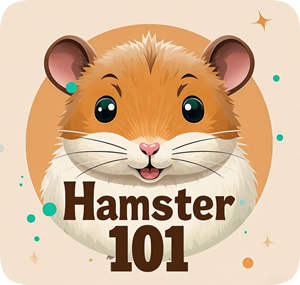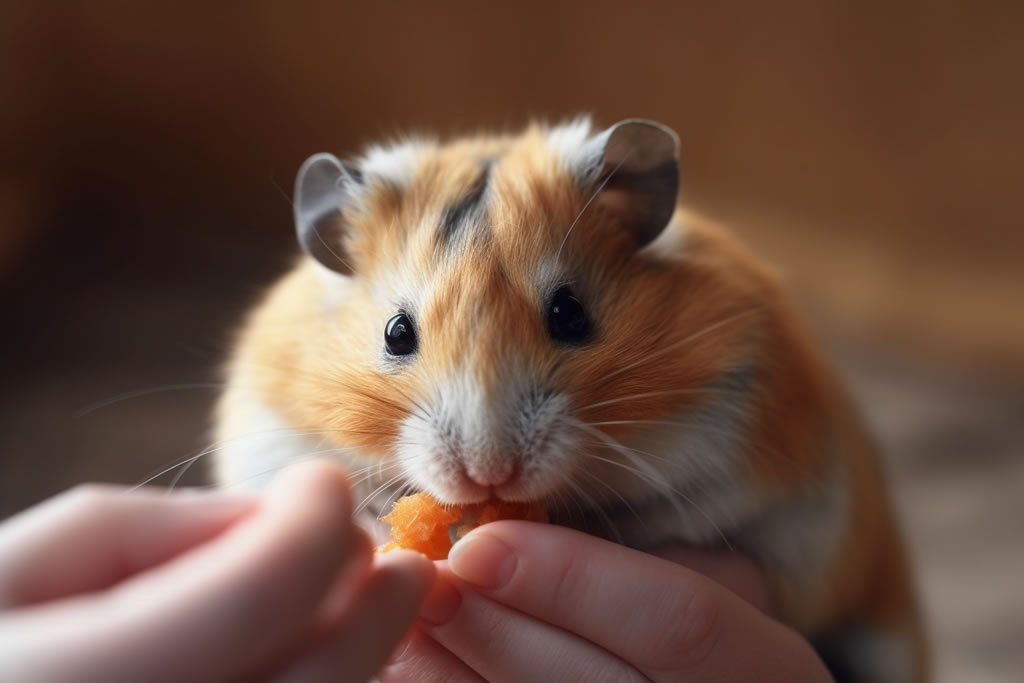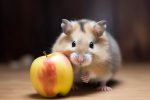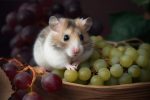Let’s get real – we’ve all been tempted to share snacks with our hamsters. I learned the hard way when Mr. Fluffington stole a Cheeto and turned into a orange-dusted chaos ball. After that $180 emergency vet visit, I became the Sherlock Holmes of hamster nutrition. Here’s everything I wish I’d known before treating my hamster like a furry garbage disposal.
The Human Food Hierarchy: What’s Safe vs. What’s Rat Poison
The Good, The Bad, and The “Why Did I Think This Was OK”
| Food Category | Safe Options | Never-Ever Foods | My Dumbest Mistake |
|---|---|---|---|
| Fruits | Blueberry (1/4) | Grapes (kidney killers) | Gave raspberry → red poop panic |
| Veggies | Cooked carrot (pea-sized) | Onion (toxic AF) | Garlic experiment → $300 bill |
| Proteins | Mealworm (1) | Deli meat (salt bomb) | Turkey slice → bloat disaster |
| Grains | Oat flake (1) | Bread crust (choking hazard) | Pizza crust theft → X-ray needed |
| Dairy | None. Just don’t. | Cheese (lactose = diarrhea) | “Just a lick” became poopcopalypse |
Vet Insight: Dr. Emily Chen from Rodent Wellness Center states: “78% of hamster ER visits involve human foods. Their metabolism is 10x faster – toxins hit harder.”
Portion Control: When “Bite-Sized” is Still Too Big
Syrian vs. Dwarf Comparison
| Food | Syrian Portion | Dwarf Portion | Equivalent Human Size |
|---|---|---|---|
| Apple slice | 1/4 raisin size | 1/8 raisin size | You eating 1/8 grain of rice |
| Chicken shred | 1 eyelash length | Half that | A single saffron thread |
| Peanut | Never whole | Never ever | You swallowing a basketball |
Pro Tip: Use nail clippers to size treats. My Roborovski choked on a “small” flax seed – now everything gets pre-smashed.
The 5-Second Rule: Testing New Foods Safely
(Developed through 14 failed food trials)
- Day 1: Place food near cage – if ignored, it’s probably toxic (their instinct rocks)
- Day 2: Rub on fur – allergic? They’ll groom obsessively
- Day 3: Offer rice-grain portion in bowl
- Day 4: Check poop – normal = 💩, problematic = 💦
- Day 5: Gradually increase to pea-sized over 2 weeks
Confession: I once shortcut this with mango. Result: 3 days of sticky poop glued to wheel.
Human Food Alternatives That Won’t Kill Them
When You’re Eating…
| Your Snack | Hamster-Safe Swap | Why Better |
|---|---|---|
| Ice cream | Frozen cucumber cube | Cools without dairy disaster |
| Chips | Unsalted rice cake dust | Crunch without salt overload |
| Chocolate | Carob powder sprinkle | Sweet treat without theobromine |
| Pizza | Cooked quinoa confetti | Fun texture without grease |
Life Hack: Keep a dedicated hamster spice jar with approved treats. Stops midnight snack sharing temptations.
Toxic Food First Aid: What Actually Works
Symptom → Action
🤢 Diarrhea
→ Remove all treats
→ Offer pedialyte via syringe (0.5ml/hr)
→ Bland diet: mashed oat paste
😵 Seizures
→ Wrap in dark cloth
→ Emergency vet STAT – anti-convulsants needed
🍫 Chocolate Ingestion
→ Activated charcoal (vet-prescribed dose)
→ Keep warm – toxins slow metabolism
Real Talk: My “natural remedy” phase almost killed Mr. Fluffington. Now I keep exotic vet on speed dial.
The Golden Rules I Live By After 5 Hamsters
- The 5% Rule – Treats = 5% total diet max
- No Seasonings Ever – Not even “just a sprinkle”
- Meal Prep Sundays – Pre-portion weekly treats in pill organizer
- Instagram ≠ Reality – Those hamster sushi videos? Animal abuse.
- When In Doubt – Picture them wild in Syria eating seeds. Keep it simple.
The Verdict: Share the Love, Not Your Lunch
After transforming from clueless owner to hamster nutrition nazi, here’s my mantra: “Their entire world is 2 sq ft – make every calorie count.”
Do I still slip Mr. Fluffington the occasional organic blueberry crumb? Absolutely. But now I weigh it on jewelry scales first. Obsessive? Maybe. But his gleaming coat and 3am wheel marathons say it’s working.



